Future Scientific

Can we trust climate models for future predictions ?
Climate models are designed to predict future changes in the Earth's climate based on scientific principles and past observations. Trust in these models depends on factors such as their scientific foundation, data quality, model complexity, intercomparison, historical validation, uncertainty quantification, and continuous improvement. While no model can perfectly predict the future, climate models offer valuable insights into potential future scenarios based on current knowledge and understanding. However, it is important to recognize their limitations and uncertainties when interpreting their results.

How does space exploration inspire future generations ?
Space exploration has been a source of inspiration for future generations in various ways, including igniting curiosity and wonder, advancing scientific knowledge, promoting international collaboration, encouraging careers in STEM, inspiring creativity and art, and nurturing resilience and perseverance. As we look toward the future, space exploration will continue to capture the imagination of young people around the world and spur them on to become the next generation of explorers, scientists, and engineers.

What are the benefits of having a higher level of scientific literacy among women ?
The article discusses the advantages of having a higher level of scientific literacy among women. It highlights how it leads to improved health outcomes, economic empowerment, environmental sustainability, social progress, and global impact. Women with strong scientific literacy are more likely to make informed healthcare decisions, pursue careers in STEM fields, engage in environmentally responsible behaviors, challenge traditional gender roles, and contribute to solving global issues. The benefits of enhancing women's scientific literacy are vast and far-reaching, making it a key component of our collective efforts towards creating a more equitable world where everyone has access to quality education and opportunities.

How does scientific literacy among women influence their career choices in science and technology fields ?
Scientific literacy significantly influences women's career choices in science and technology fields by enhancing opportunities, overcoming barriers, increasing diversity, and improving representation. It enables women to access complex scientific information, develop problem-solving skills, broaden their perspectives, break stereotypes, promote equality, address biases, expand career horizons, encourage mentorship, foster collaboration, challenge underrepresentation, influence policy, and change public perceptions about the suitability of these fields for females.

What are some effective scientific memorization techniques ?
Effective Scientific Memorization Techniques Memorizing scientific information can be a challenging task, but with the right techniques, it can become much easier. Here are some effective scientific memorization techniques that you can use to improve your memory and recall: 1. Visualization: Create mental images of the concepts you are trying to remember to make them more memorable and easier to recall. 2. Mnemonic Devices: Use tools like acronyms or rhymes to associate information with something else that is easier to remember. 3. Repetition and Practice: Repeat information over and over again to strengthen your memory and improve your ability to recall it later on. 4. Chunking: Break down large amounts of information into smaller, more manageable chunks to make it easier to remember and recall complex concepts or data sets.

What are the key factors that contribute to women's scientific literacy ?
Scientific literacy is crucial for personal development and education, enabling individuals to engage with their surroundings. For women, achieving scientific literacy can be influenced by various factors such as educational opportunities, cultural and societal norms, support systems and resources, workplace environment, policy and legislation, community and media representation, and personal development and self-advocacy. Addressing these key factors can empower women with the scientific knowledge needed to thrive in an increasingly technological world.

How does scientific literacy among women vary across different countries and cultures ?
This article explores the variations in scientific literacy among women across different countries and cultures. It highlights the factors that influence scientific literacy, including education, socio-economic status, cultural norms, and access to resources. The article also discusses the implications of these variations for society as a whole, such as health outcomes, economic development, and environmental sustainability efforts. Finally, it emphasizes the importance of promoting scientific literacy among women through targeted education programs and initiatives that address the specific challenges faced by women in different cultural contexts.

What initiatives can be taken to improve scientific literacy among women ?
Scientific literacy is important for making informed decisions about health, environment, and technology. Women often face barriers to accessing scientific education and resources. To improve scientific literacy among women, initiatives such as educational programs, community outreach, media representation, and policy changes can be taken. These include integrating STEM subjects into the school curriculum, offering girls-only classes, connecting young girls with female role models in STEM fields, establishing community-based science clubs for women of all ages, organizing public lectures by women scientists, conducting workshops and training sessions on various scientific topics, highlighting stories of successful women in science through media platforms, encouraging more women to pursue careers in science journalism, utilizing social media platforms to create awareness about scientific issues affecting women's lives, advocating for increased funding for educational programs and research initiatives focused on improving women's participation in STEM fields, lobbying for policies that ensure equal opportunities for women in science education and employment, and implementing mandatory gender bias training for educators and professionals working in STEM fields. By implementing these initiatives, we can create a more inclusive environment that encourages women to explore and contribute to the field of science.

What challenges do women face in achieving scientific literacy, especially in developing countries ?
Scientific literacy is crucial for individuals to understand and make informed decisions about the world around them. However, women in developing countries face numerous challenges in achieving scientific literacy due to various socio-economic and cultural factors. These include a lack of access to education, economic barriers such as poverty and limited job prospects, gender stereotypes and bias in teaching methods, family pressures and responsibilities like child marriage and household chores, inadequate infrastructure, and a technological divide. Overcoming these challenges requires concerted efforts from governments, educational institutions, NGOs, and communities to promote gender equality in science education. By addressing socio-economic barriers, changing cultural perceptions, improving infrastructure, and bridging technology gaps, we can create an environment where women can achieve scientific literacy and contribute fully to the advancement of science worldwide.

Can climate data analysis accurately predict future weather patterns ?
Climate data analysis, utilizing sophisticated climate models based on physical laws and accounting for complex interactions within the Earth system, plays a crucial role in predicting future weather patterns. These models allow scenario-based projections and ensemble forecasting to account for uncertainties. While they are continuously improved as new scientific understanding emerges, it's important to distinguish between weather forecasting (short-term events) and climate prediction (long-term trends). Climate prediction involves more variables, broader trends, external forcings, and wider confidence intervals compared to weather forecasting. However, climate models face uncertainties such as natural variability, model discrepancies, emission scenarios, feedback mechanisms, and regional differences. Despite these challenges, climate science has made progress in predicting aspects like global warming, sea level rise, extreme weather events, regional changes, and carbon cycle responses. In conclusion, climate data analysis can provide valuable insights into potential future climate patterns but comes with inherent uncertainties, especially in forecasting specific weather events far into the future. Ongoing advancements in climate science aid in developing informed policies and adaptation strategies.

How can wind energy contribute to a sustainable future ?
Wind energy is a renewable and sustainable source of power that can significantly contribute to a more sustainable future. It offers several benefits including reducing carbon emissions, stimulating economic growth, enhancing energy security, driving technological innovation, compatible land use, community engagement, scalability, improving health impacts, and promoting education and awareness. By incorporating wind energy into our energy mix, we can create a cleaner, healthier, and more sustainable environment for future generations.

How accurate are climate models in predicting future weather patterns ?
Climate models are complex mathematical representations designed to predict future weather patterns. The accuracy of these models is influenced by factors such as data quality, model complexity, and uncertainty in future emissions. Limitations include less accurate short-term predictions and uncertainty in model projections. Potential improvements include better data collection, advances in modeling techniques, and collaboration across disciplines.

What is the impact of climate decisions on future generations ?
This text discusses the far-reaching impacts of climate decisions on future generations, including environmental issues such as rising sea levels and loss of biodiversity, economic shifts related to job markets and infrastructure costs, and societal effects like health concerns and political stability. It emphasizes the importance of taking immediate action to mitigate these impacts and create a sustainable future for all.

How does scientific literacy among women impact society ?
Scientific literacy among women has significant benefits for society, including improved health outcomes, increased economic opportunities, enhanced environmental stewardship, greater participation in policy decisions, and promotion of gender equality. However, challenges such as lack of access to quality education, gender biases in STEM fields, limited role models, and workplace discrimination must be addressed to fully realize these benefits.

How can we predict and prepare for extreme weather events ?
Predicting and preparing for extreme weather events is a critical aspect of modern society. With advancements in technology and scientific research, we now have the ability to forecast these events with greater accuracy than ever before. However, predicting and preparing for extreme weather events requires a multi-faceted approach that involves both scientific knowledge and practical preparation. In this article, we will explore some of the key ways in which we can predict and prepare for extreme weather events.

What is the future of e-sports and its integration with technology ?
E-sports, or electronic sports, have seen a meteoric rise in popularity over the past decade. As technology continues to evolve at a rapid pace, the future of e-sports looks brighter than ever before. In this article, we will explore the potential integration of e-sports with technology and what it means for the future of competitive gaming.

What is the future of carbon credit systems ?
The future of carbon credit systems is uncertain and depends on various factors such as policy decisions, technological advancements, public opinion, and market dynamics. Governments play a crucial role in shaping the future of these systems through regulations and enforcement. Technological innovations can both increase and decrease the value of carbon credits. Public opinion can drive demand for carbon credits, while market dynamics will shape the industry's evolution. Despite challenges, there are opportunities for growth and improvement in this important area of environmental protection.

How does scientific literacy among women affect their decision-making abilities in healthcare and environmental issues ?
The level of scientific literacy among women significantly influences their decision-making abilities in healthcare and environmental issues. Scientifically literate women are better equipped to access, understand, and critically evaluate health information, leading to healthier lifestyle choices and more effective communication with healthcare providers. They also show greater awareness of environmental issues and are more likely to adopt sustainable practices, engage in conservation efforts, and advocate for evidence-based policies. Enhancing scientific literacy among women is crucial for empowering them to make well-informed choices that benefit both their own health and the environment.

What is the future outlook for private equity ?
Private equity (PE) is a dynamic sector of the financial industry that involves investing in or acquiring companies, typically with the aim of improving their operations and selling them at a profit within a few years. The future outlook for private equity is influenced by various factors such as economic conditions, technological advancements, regulatory changes, and market trends. Here's a detailed analysis of what the future might hold for private equity: Economic Influences: Global Economic Growth, Interest Rates, Market Volatility Technological Advancements: Digitization, Artificial Intelligence and Machine Learning, Blockchain Regulatory Changes: Stricter Regulations, Tax Laws Market Trends: ESG Investing, Diversification, Exit Strategies Industry Evolution: Consolidation, Secondary Markets, Direct Investments Challenges and Opportunities: Competition, Talent Retention, Innovation In conclusion, the future of private equity looks promising but not without its challenges. The industry is set to evolve with changing economic conditions, technological advancements, regulatory shifts, and market trends. PE firms that adapt and innovate will be well-positioned to thrive in this dynamic environment.
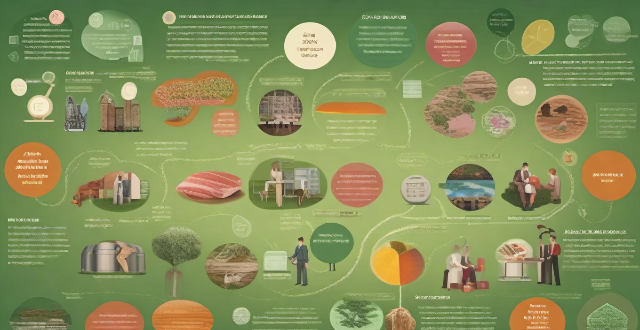
What policies can be implemented to reduce the number of climate refugees in the future ?
Policies to reduce the number of climate refugees in the future include investment in renewable energy, afforestation and reforestation, sustainable agriculture practices, coastal protection measures, and international cooperation and funding. These policies aim to mitigate the effects of climate change and prevent displacement of people due to climate change-related events.
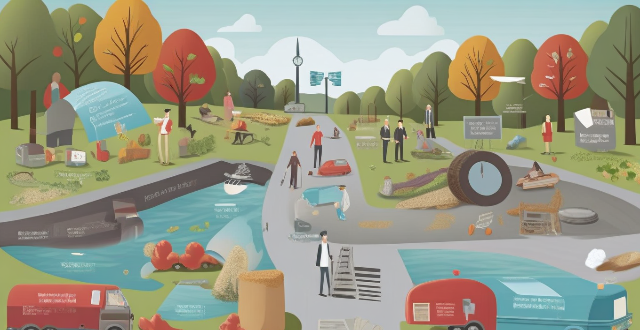
What are the implications of climate change negotiations for future generations ?
The implications of climate change negotiations for future generations are significant and multifaceted, affecting various aspects of life, including the environment, economy, society, and politics. Effective negotiations can lead to preserved natural ecosystems, mitigation of extreme weather events, job creation in renewable energy sector, reduction in energy costs, improved public health, enhanced quality of life, global cooperation, and leadership and innovation. These benefits highlight the importance of prioritizing the interests of future generations in climate change negotiations to ensure a sustainable and equitable world for all.
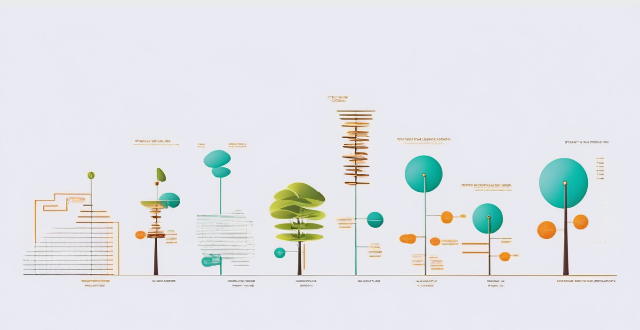
What is climate forecasting ?
Climate forecasting is the application of scientific knowledge and techniques to predict future climate conditions. It involves analyzing historical and current weather patterns, as well as understanding the physical processes that drive them, in order to make predictions about future climate trends. Key components of climate forecasting include data collection, modeling, analysis, and prediction. Climate forecasting plays a crucial role in various sectors including agriculture, water resources management, energy production, and disaster risk reduction. Despite challenges such as the complexity of the climate system and limited historical data, continued research and advancements in technology will improve our ability to predict future climate trends accurately.

How does defaulting on a student loan affect future borrowing ?
Defaulting on a student loan can severely impact your financial future, including your ability to borrow money. Here's what happens when you default and how it affects future borrowing: 1. **Consequences of Defaulting**: When you fail to make payments on your student loan for an extended period (typically 270 days), it's declared in default. The loan servicer then takes measures like wage garnishment, tax refund offset, and charging collection fees. Your credit score also takes a significant hit. 2. **Impact on Future Borrowing**: - **Difficulty Obtaining New Loans**: Lenders see you as a high-risk borrower, making it hard to get mortgages, car loans, or personal loans. - **Higher Interest Rates**: Even if approved, you face higher interest rates due to your damaged credit score. - **Limited Borrowing Options**: You may only qualify for secured or co-signed loans. - **Trouble Renting Property**: Some landlords check credit scores, and a defaulted loan can hinder your rental applications. - **Impact on Employment Opportunities**: While less common, some employers might check your credit report, affecting job prospects in industries where financial responsibility is crucial. 3. **Recovering from Default**: - **Rehabilitation Programs**: Many lenders offer these to help you make affordable payments over time, removing the default status. - **Consolidation Loans**: You can consolidate your defaulted loan into a new Direct Consolidation Loan through the federal government, making it easier to manage your debt. However, this doesn't remove the default status from your credit report. - **Paying Off the Debt**: If possible, paying off the loan in full removes the default status and improves your borrowing prospects. Negotiating a settlement with your lender or seeking assistance from a nonprofit credit counseling agency are other options.

What are the implications of climate change for future generations ?
Climate change has significant implications for future generations, including rising sea levels, extreme weather events, food security, and health impacts. Rising sea levels can lead to flooding, displacement of communities, and loss of habitat for marine life. Extreme weather events can cause loss of life, destruction of infrastructure, and long-term changes in ecosystem structure and function. Climate change can also affect global food production, particularly in regions that are already vulnerable to food insecurity. Changes in temperature and precipitation patterns can affect crop yields, pest and disease outbreaks, and water availability for agriculture. Additionally, climate change can have significant impacts on human health, including increased risk of infectious diseases, respiratory illnesses, and mental health problems. The challenges presented by climate change require urgent action from individuals, governments, and organizations around the world to mitigate its effects and ensure a sustainable future for all.
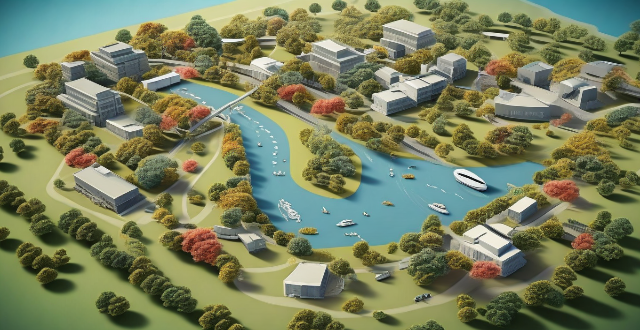
How does education contribute to raising environmental awareness among future generations ?
Education is crucial for raising environmental awareness among future generations, as it enhances knowledge, develops values, and promotes action. Incorporating environmental education into the curriculum empowers students with the necessary tools to understand and address complex challenges facing our planet. By fostering a deeper appreciation for nature and cultivating a sense of responsibility towards preserving it, schools can play a significant role in nurturing eco-conscious citizens who are well-equipped to confront and overcome environmental challenges.

What are the implications of climate change for future generations, specifically children ?
Climate change poses significant challenges and threats to future generations, particularly children. The implications of climate change for children are multifaceted and far-reaching, affecting their health, safety, education, and overall well-being. Health implications include increased respiratory problems, spread of infectious diseases, and nutritional deficiencies due to extreme weather events and changing precipitation patterns. Safety risks involve natural disasters and heat stress, while education is affected by disruption of learning and limited access to educational resources. Overall well-being implications include mental health issues, loss of cultural heritage, and economic impacts on families and communities. Addressing these challenges requires urgent action to mitigate the effects of climate change and adapt to its inevitable consequences, ensuring a healthier, safer, and more equitable future for all children.

What is the role of robotics and artificial intelligence in future interstellar missions ?
The article discusses the role of robotics and artificial intelligence (AI) in future interstellar missions. The key areas where these technologies will make a difference include autonomous navigation and control, maintenance and repair, scientific research and data collection, and colony establishment and management. However, there are challenges to consider such as reliability, security, and ethical considerations. Overall, robotics and AI will play an integral role in overcoming the immense challenges of traveling to distant stars.

Can you explain the concept of a space launch system and its importance for future missions ?
A space launch system, or rocket, is a vehicle designed to carry payloads from Earth's surface into space. It consists of various stages containing propulsion systems that provide the necessary thrust to overcome Earth's gravity and achieve the desired orbit or trajectory. The importance of space launch systems for future missions cannot be overstated, as they are essential for exploring space, conducting scientific research, and enabling commercial activities beyond our planet. Key components of a space launch system include the propulsion system (engines and fuel tanks), payload (satellites, spacecraft, or other materials), stages (multiple stages with their own propulsion systems), and guidance and control systems (to ensure correct trajectory during launch and deployment). Space launch systems play a crucial role in advancing our understanding of the universe by enabling scientific research and exploration missions. They allow us to study celestial bodies such as planets, moons, asteroids, and comets, as well as investigate phenomena like black holes and dark matter. By launching telescopes, probes, and rovers into space, we can gather valuable data and insights that would otherwise be impossible to obtain from Earth's surface. As humanity looks towards returning humans to the Moon and eventually sending them to Mars, space launch systems become even more critical. They will be responsible for transporting astronauts, habitat modules, life support systems, and other essential equipment needed to establish a sustainable presence on these extraterrestrial bodies. Additionally, space launch systems will enable the transportation of resources mined from asteroids or other celestial bodies back to Earth or used in space-based manufacturing facilities. The growing commercial interest in space has led to numerous private companies developing their own space launch systems. These ventures aim to provide services such as satellite deployment, space tourism, and even asteroid mining. Space launch systems are essential for these businesses to thrive, as they provide the means to access space and deliver their products and services.
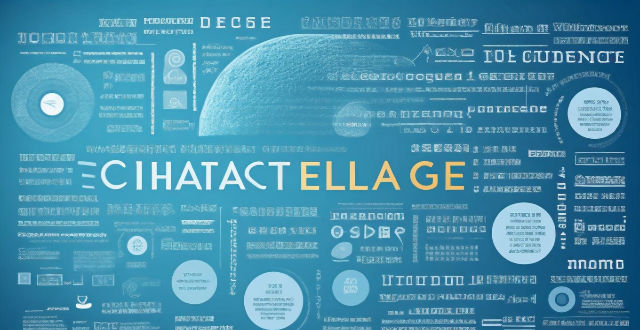
Are there any reputable scientists who support the views of climate skeptics ?
The text discusses the topic of climate change and whether there are reputable scientists who support the views of climate skeptics. It mentions that while there may be scientists who express skepticism about certain aspects of climate change, it is rare to find reputable scientists who entirely reject the consensus view on anthropogenic climate change. The text provides information on three scientists who have been critical of certain aspects of climate change, but notes that their views are often disputed within the scientific community. The text concludes by stating that the overwhelming majority of scientific evidence supports the idea that human activities are contributing significantly to global warming, and that it is essential to rely on comprehensive reviews of scientific literature and consensus reports from authoritative bodies like the Intergovernmental Panel on Climate Change (IPCC) for the most accurate understanding of climate change and its implications.
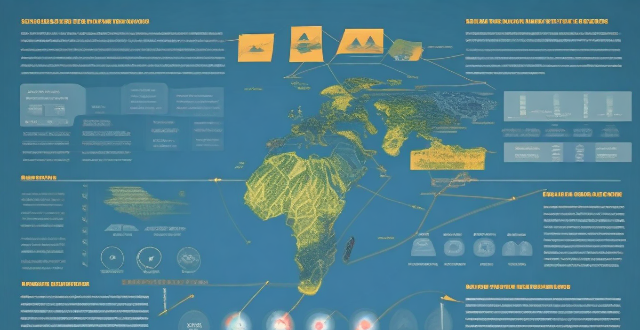
How does climate change influence the future of remote work and virtual employment ?
The article discusses the impact of climate change on the future of remote work and virtual employment. It states that rising temperatures, extreme weather events, and environmental concerns are driving factors for the shift towards remote work arrangements. As a result, there is an increasing demand for remote work options, technology advancements to support virtual employment, and a changing work culture that focuses on results rather than physical presence. The article concludes that embracing these changes can lead to a sustainable and efficient future of work.